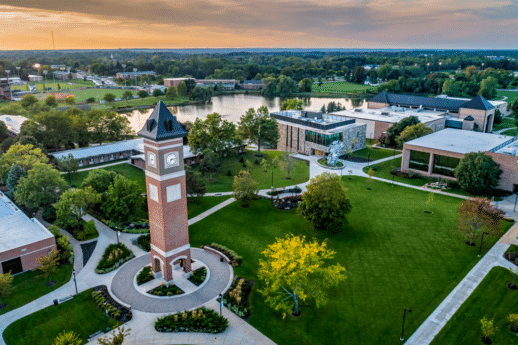I remember applying for colleges and how stressful it was. Looking back, I wonder: If I was stressed, how stressed were my parents? While students can find it hard applying to colleges, tackling the full college admission process is often a team effort that includes help from friends, parents and other family members. This post is for all of you working hard to support your student through the college process. At Cornerstone, our admissions team is rooting for you and your success. You’ve got this!
Applying to Colleges
So, what’s in an average college application? It usually asks for at least three types of information about your student: biographical, demographic and personal information or essays.
Biographical information includes basic information like a student’s name and age. Demographic information can include GPA, ethnic background, whether your student wants to live on campus, if your student is an athlete and what student associations your student might be a part of. Personal information is usually requested in the form of essays or short answer questions that prompt students to reflect and share what makes them stand out as an applicant.
Paying for College
As you’re researching colleges, you’ve probably heard the term financial aid package tossed around. At Cornerstone, financial aid packages are tailored for each student after a student files the FAFSA. (Filing the FAFSA is an important step in the college application process and you can learn more about it here.) The financial aid package your student receives will lay out what kinds of financial support your student is eligible to receive through loans, grants and scholarships.
A loan is a form of aid your student will have to pay back, and it often accrues interest over the course of being paid back. Federal loans are calculated immediately by your student’s FAFSA, but private loans (from businesses and other organizations) have to be researched and applied for by students.
A grant is money that your student does not have to pay back. Some grants require students to apply for them and often they have a set of requirements for whether or not a student is eligible to receive them. Scholarships are another form of aid that have to be applied for but do not have to be paid back. Many colleges have scholarships specific to incoming students and additional scholarships (like institutional scholarships) for students to apply for after college enrollment.
Outside of colleges themselves, there are also external scholarships. I would recommend that your student research outside scholarships, including scholarships local to your community. These scholarships might be accessible through your local school district or church network. You can find a full list of the types of scholarships offered at Cornerstone here.
Visiting Colleges
Reading about a college and evaluating the pros and cons is incredibly important. Still, nothing quite beats an in-person campus visit. When you visit Cornerstone, you have the opportunity to see where your student will be learning and meet the community who makes campus home. You can even meet with staff and faculty to take a deeper look at things like academic programs. Click here to schedule your campus visit today.
Frequently Asked Questions
Here are a few frequently asked questions for additional tips to help your student through the application and admission process at Cornerstone.
Is chapel required for Cornerstone students?
Yes, chapel is an integral part of our campus community, so attendance is required for every student. Our chapel services feature student-led worship and a rotation of campus speakers, as well as guest speakers. There are also division-led services that fulfill chapel credit requirements while strengthening students’ ties to their academic field.
When does a student need to commit to CU, and is there a deadline for submitting the enrollment deposit?
We strongly recommend depositing by May 1. Depositing “unlocks” access for students to receive important forms for things like class pre-registration and housing preference requests, so it’s great to do it sooner rather than later. That way, they can be part of the first group to get access to those forms in the spring. (Deposits made by May 1 are refundable until May 1.)
What academic support is available for students?
Cornerstone is dedicated to seeing your student succeed. The Center for Academic Success evaluates students on a case by case basis to create a personalized academic action plan that works for them. It also provides tutoring and academic advising.
What is Cornerstone’s Faith and Values Statement?
“Cornerstone University is a learning community rooted in Christ, and Cornerstone’s staff, faculty and trustees sign a public doctrinal statement yearly.” To read Cornerstone’s Confession of Faith in its entirety, click here.
Do students stay on campus during the weekends, and what events are offered to students living on campus?
There is almost always something to do on or near campus! Some student events include Capture the Campus, a campus wide game of capture the flag; Powder Puff, a two-hand touch football battle between two girls dorms; and Mixed Threads, a cultural celebration that highlights all the different cultures on campus through dance, music performances and worship.
Who to Contact
Cornerstone’s admissions staff is always eager to talk to you and would love to answer any questions you may have. When I was applying to Cornerstone four years ago, my admissions counselor went above and beyond to help me apply for admission and scholarships. Fast forward to today, and we are still connected. I got to interview her for this blog post!
Don’t be afraid to reach out to the admissions office about any questions you have.







